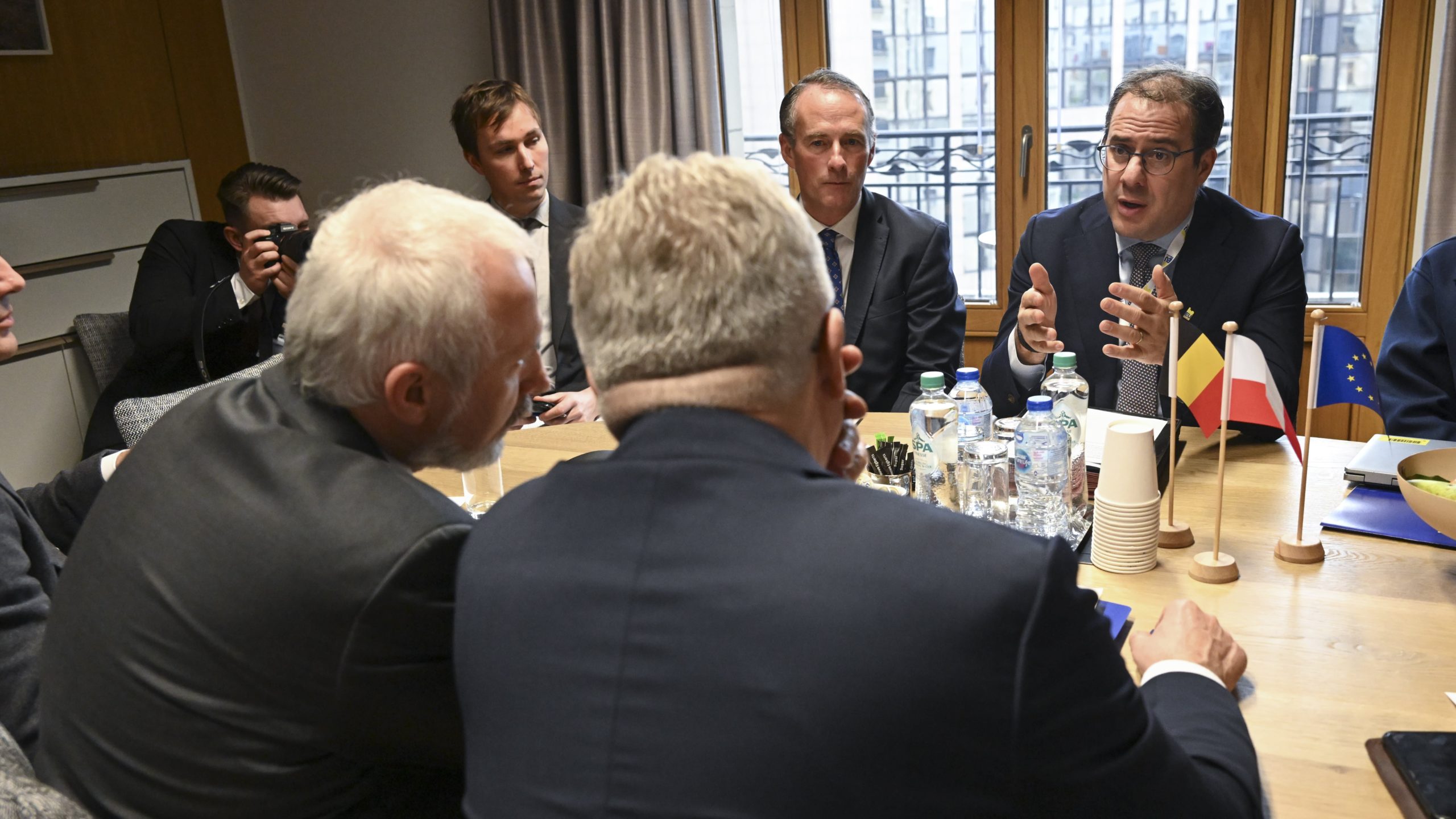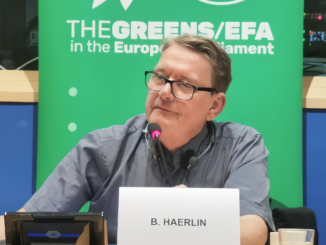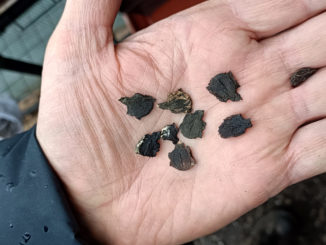
With the EU elections just around the corner, policy makers are scrambling to push the last of the agrifood files across the finish line before Brussels switches into election mode. This means the next few months could prove decisive for the future direction of the agrifood sector.
As Brussels kicks back into gear for the new year, ARC takes a look at the fun to come on the EU policy agenda and brings you up to speed on what to expect over the coming weeks and months. By Natasha Foote.
Talking the talk
The European Commission has finally announced the long-awaited official launch of its strategic dialogue on agriculture, inviting stakeholders for the first round of talks on 25 January.
The dialogue, announced by the European Commission President Ursula von der Leyen in her State of the Union address back in September, was proposed as a way to foster “more dialogue and less polarisation” in the sector.
However, its launch was seen by many commentators as a way to press pause on the EU’s flagship food policy, the Farm to Fork, after a number of key sustainable agrifood files buckled under the weight of political pressure ahead of the looming EU elections.
By “combining different perspectives from various actors”, the dialogue aims to “bring about new solutions and to cultivate a common vision for the future of agriculture in Europe” the invite, seen by ARC, sets out. According to the Commission, the aim is to have this wrapped up by summer 2024.
The launch includes an informal dinner on 24 January followed by a meeting in ‘plenary format’ on 25 January. The list of the 30 invitees includes a range of voices, from NGOs such as Agroecology Europe and the European Environmental Bureau, to farmers’ associations including Copa-Cogeca and European Coordination Via Campesina, to industry players such as FoodDrinkEurope.
However, the invite for the long-awaited launch was met with consternation by invitees, many of which voiced their dissatisfaction about the last minute nature of the invite.
This “creates the feeling that they don’t respect us,” one invitee told ARC, adding that this lack of consideration is what is feeding the “current movements of anger” seen in farming communities across the bloc.
Ahead of the launch, a number of the attendees, spearheaded by EU young farmers’ association CEJA and including the likes of Agroecology Europe, WWF and retailers’ lobby Eurocommerce, signed a joint statement stressing the need to establish a “longer-term basis” for work that “does not focus on short-term gains but forward-looking solutions”.
To this end, signatories expressed a commitment to ensure the dialogue is held in a “constructive spirit and with an open mind”, calling on institutional actors “support the positive dynamic we have already initiated”.
New year, new presidency
With the new year comes a new head of the rotating EU presidency, with Spain passing the baton on to Belgium.
The Belgian Presidency of the EU, which began on 1 January and will end on 30 June, is the last before the upheaval of the EU elections and the new Commission mandate. As such, the home country of the European institutions has the unenviable task of pushing through the dregs of the agrifood files that remain.
This includes the EU’s pesticide reduction plan, which is still hanging on despite considerable setbacks, and the EU’s controversial proposal to loosen the rules around the use of new GMOs (more on both of these below).
Presenting his key agriculture priorities for his time at the helm of the AGRIFISH council during a meeting of EU agrifood on Tuesday (23 January), Belgium’s deputy prime minister and the federal minister for agriculture David Clarinval highlighted “strategic autonomy and food sovereignty” as key aims, as well as a focus on global food insecurity on the back of growing economic crises, geopolitical conflicts and climate change.
The Presidency also outlined an ambition to kick off discussions on the future of agriculture in the context of the Commission’s strategic dialogue.
Meanwhile, the Belgians have also decided to add fuel to the embers of a fire that had almost burned out in Brussels – the contentious voluntary front-of-pack labelling scheme Nutriscore, which is on the menu of an upcoming scientific symposium.
Despite being a core ambition of the EU’s flagship food policy, the Farm to Fork strategy, the proposal on a mandatory EU-wide nutritional label of food was postponed, but Belgium – who is part of a pro-Nutriscore coalition of countries – seems keen to revive the conversation.
See here for Belgium’s work programme.
New GMOs
The most contentious file to keep an eye on over the next few weeks is on the legislative proposal to loosen the rules on the use of so-called new genomic techniques.
The new genetic modification techniques – also known as gene editing or new GMOs – describes several scientific methods used to alter genomes and genetically engineer certain traits into plants.
This week will see a key vote in the European Parliament’s environment committee (ENVI) on Wednesday (24 January) in efforts to establish their position on the contentious file – but amid rifts between the left and right of the Parliament, it is unclear which way the vote will go.
Points of contention include coexistence measures and the establishment of a liability system in the event of gene transfer. Traceability and labelling also remain key sticking points, as well as patentability of NGTs – an issue which the Commission proposal failed to address.
If the environment committee gives its greenlight, the position will go to a plenary vote in the first week of February.
Meanwhile, over in the Council, technical discussions on the file are ongoing after member states failed to find a general position on the file back in December. According to sources, the Belgian Presidency is still pushing hard to rally enough support for a general approach, but the patentability of NGTs continues to prove the biggest bone of contention among EU countries.
Poland is the main player to watch here. According to a source close to the matter, the Presidency is currently focusing efforts on winning Poland’s support as this would be enough to swing the majority in favour of the proposal. As such, the two sides are engaging in a number of bilateral meetings in hopes to find common ground.
The Belgians are also keeping a close eye on developments in the Parliament, suggesting that Wednesday’s vote in the ENVI committee will be decisive for the Presidency’s game plan.
The SURvival strategy
The contentious sustainable use of pesticides regulation (SUR) proposal aims to slash the use and risk of pesticides in half by 2030, as set out in the EU’s flagship food policy, the Farm to Fork strategy.
But it seemed it was game over for the file after it was rejected outright by the European Parliament back in November without the possibility of being sent back to the Parliament’s environment committee – who led work on the file – for a rehashing.
While not unheard of, the move is exceedingly rare and left stakeholders wondering whether this means the file is dead in the water – but it seems that the file is still hanging on, according to a leaked paper ahead of a meeting of the working party on plants and plant health on 24 January.
The paper, seen by ARC, outlines the “tentative strategy” for the way forward on the SUR file proposed by the Presidency to “finalise” work on the file – meaning there is still a chance the SUR lives on.
However, sources close to the matter suggest this may involve getting rid of references to the most controversial parts of the proposal; namely that on sensitive areas and both national and EU wide reduction targets.
Instead, the game plan would be to focus on tools that farmers can use to reduce pesticide use, such as biocontrol methods and IPM techniques. The idea would then be to introduce targets at a later date once more data has been collected on the situation.
However, even in the event that the Council manages to pull together a general approach, this would then need to be greenlit by the Parliament – an unlikely prospect at this point given its previous outright rejection.
See here for more details on the SURvival strategy moving forward.
Seedy business
Another key proposal up for discussion over the coming months is the Plant Reproductive Materials (PRM) revision.
Presented back in July 2023, the proposal is designed to simplify and consolidate the current fragmented legal framework by merging several different laws, some dating back to the 1960s, into just two regulations – one on plant reproductive materials, the other on forest reproductive materials.
However, compared to the NGT proposal, the file is moving slowly, according to European seeds lobby Euroseeds, who added in a recent press briefing that – contrary to original expectations – the technically complex file is moving faster in the Parliament than Council.
The MEPs charged with overseeing work on the PRM are expected to “come up with compromise amendments on this by next month latest,” the association’s expert said, adding that there are 794 amendments so far on the table.
While votes in the committees responsible and in the plenary were originally scheduled for February and March (respectively), the association sees little hope of the file making it to a full-Parliament vote before the April cut off date, after which time all hands are on deck for the looming EU elections.
More realistically, the file could make it to a vote in the Parliament’s agriculture committee, currently pencilled in for 19 March. While the agri committee holds competence on the file, it shares some areas with the Parliament’s environment committee, who are currently expected to vote on the file on 7 March.
As discussions progress on the PRM, a coalition of campaign groups have joined forces to petition EU decision makers to rehaul the EU seed law proposal to “protect and promote crop diversity” as well as farmers’ right to harvest, use, exchange and sell their own seeds.
More
Leak – Belgian Presidency’s SUR-prising Hope for Pesticides Regulation
Brussels News – GM-nos, Howling Wolves and the Many Missed Environmental Targets
Pesticides Proposal Rejected in Plenary, Next Steps a SUR-prise
Brussels Roundup – Stasis for Animals, Tightrope for new GMOs
To Regulate Or Not To Regulate – NGTs Remain Highly Controversial
Leak – No Live Export Ban to non-EU Countries in Animal Welfare Overhaul





